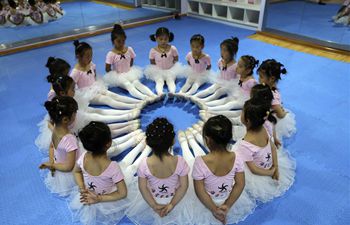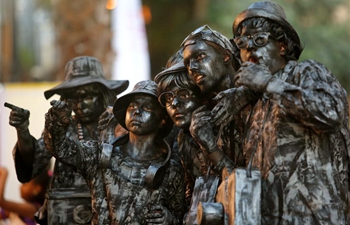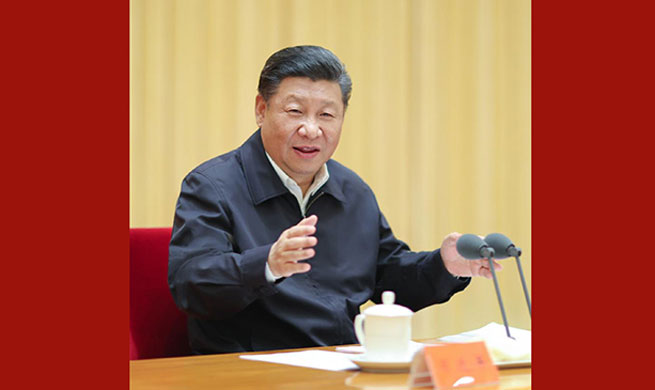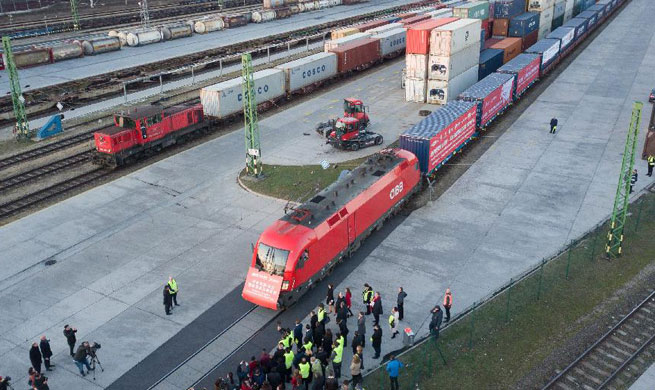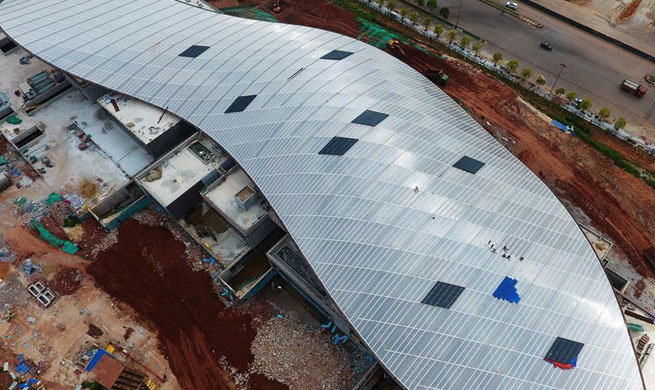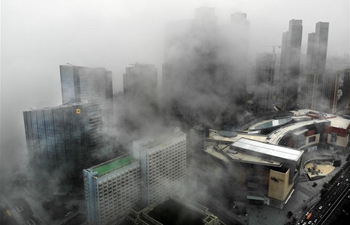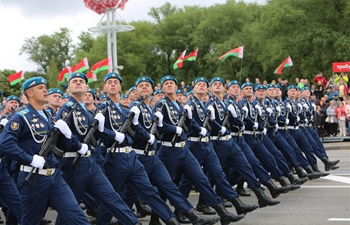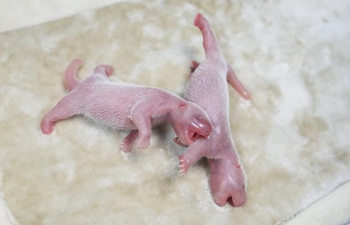CHANGCHUN, July 5 (Xinhua) -- In China's battle against poverty, northeast Jilin Province has found a new way to help poor and vulnerable residents.
Beginning in 2018, impoverished locals in the Korean Autonomous Prefecture of Yanbian are allowed to exchange points for daily necessities instead of paying money in certain shops.
Hu Faying, 45, is a resident of Huangnihe Town in the city of Dunhua. Finding a well-paid job is very difficult for her as she suffers from dwarfism.
Income for her family mainly comes from the local government's basic living allowance and a very small profit makes as a street vendor.
The new method of exchanging credits for goods is a new way to "earn some money" for Hu.
Like many other impoverished families, Hu rarely cleaned her home in the past. But making her house clean and neat, as well as improving the surroundings now brings her points every month.
"I redeemed 120 points that I have accumulated over the past four months for some washing powder and toilet paper in the shop," Hu said, adding that one point equals one yuan (0.15 U.S. dollars).
Over the past six months, 16 towns in the city of Dunhua have established government-led "poverty relief shops."
The one in Hu's town is actually located in a supermarket. It sells kitchen and toilet products, as well as some food, with prices ranging from one to 40 points.
"Those small products are very common things, however, they matter a lot for poor households, which can reduce some burdens for them," said Jiang Yan, owner of the supermarket.
Wei Xinfeng, an official of the poverty alleviation and development office of Dunhua City said some "poverty relief shops" scattered in the city were open inside some supermarkets, while others were in the office buildings of local village committees.
"Supermarkets and village committees offer places to those shops for free. Goods for exchange are purchased by the government's special anti-poverty funds," said Wei, adding that registered poor households are eligible for exchanging goods in the shops.
The city plans to invest two million yuan in poverty relief shops this year.
"The method aims to encourage poor people to work and create a better life for themselves," Wei added.
"For those elderly or disabled poor people, they can easily get some points within their power, such as by cleaning village roads, collecting litter, or even cleaning their own houses. It is a way to give the poor incentives to improve their living environment," said Sun Dongsheng, deputy mayor of Tumen City.
In Dongxing Village, poor villagers can not only use points to exchange goods, they can also receive dividends from the collective economy based on how many points they get, as the village is developing flower and mushroom growing.
"I can earn 60 points for an hour of weeding. Poor people as old as me can simply make some money. I see a bright future," said villager Wang Shurong, who is in her 70s.
"Poor residents are expected to earn 2,000 to 3,000 yuan more every year because of the new method, meanwhile, they can also make some contribution to the development of the village," said local official Wu Chunmei.





